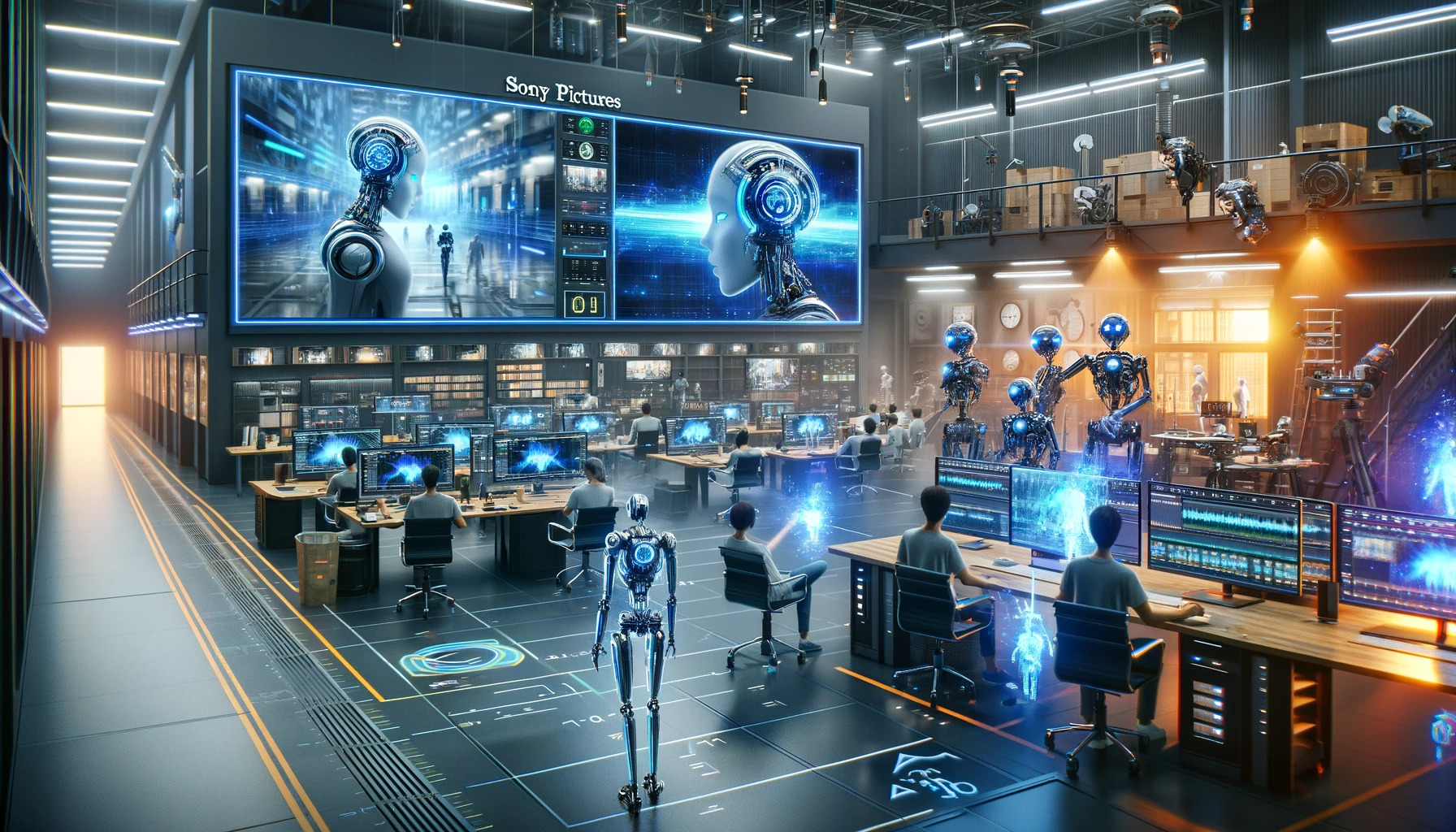Sony Pictures is revolutionizing the film and television production landscape by integrating generative artificial intelligence (AI) into its processes. This strategic shift, announced by Sony’s CEO Tony Vinciquerra at an investor conference in Japan, underscores the studio’s commitment to leveraging AI for efficiency and innovation in content creation. This article delves into the implications of Sony’s AI integration, the broader industry context, and the potential benefits and challenges it brings.
AI in Film Production: A Strategic Pivot
Commitment to AI-Driven Production
Sony Pictures is embarking on a transformative journey, utilizing AI to streamline film and television production. Vinciquerra emphasized that AI will be a primary tool in producing content more efficiently. This move is particularly timely, given the industry’s increasing focus on cost reduction and operational efficiency. By incorporating AI, Sony aims to enhance productivity, reduce costs, and potentially revolutionize the way films and TV shows are made.
Context of Union Negotiations
This strategic pivot coincides with critical negotiations between Hollywood’s major crew union and top studios. These discussions, which involve the potential impacts of AI on jobs, are pivotal as existing contracts are set to expire soon. Union protections and the implications of AI on employment are central to these talks. The outcomes could significantly influence how extensively Sony and other studios can implement AI technologies in their production processes.
The Industry’s Perspective on AI
Historical Insights
The conversation around AI in Hollywood is not new. Industry veterans like Jeffrey Katzenberg, founder of DreamWorks, have long highlighted AI’s potential to drastically reduce the costs of creating animated films. AI technology promises to enable fewer artists to achieve what once required hundreds, indicating a significant shift in production dynamics.
Current Concerns and Benefits
A report from January indicates that three-quarters of entertainment leaders believe AI is contributing to job losses, particularly affecting roles like voice actors, concept artists, and postproduction workers. Despite these concerns, some industry professionals advocate for AI’s potential benefits. For instance, Kathryn Brillhart, visual production supervisor for high-profile projects like Fallout, Rebel Moon, and Black Adam, supports AI’s ability to enhance visual effects (VFX) work and streamline production workflows.
Sony’s Motivations and Challenges
Box Office Setbacks
Sony’s venture into AI-driven production is also motivated by recent box office disappointments, such as the underperformance of ‘Madame Web’ and the critical failure of ‘Morbius’. These setbacks have likely intensified the urgency for Sony to explore more sustainable and innovative production methods. AI offers a promising avenue to overcome these challenges by enabling more efficient and cost-effective production techniques.
Union Agreements and AI Integration
Vinciquerra noted that Sony’s approach to AI is shaped by union agreements. These agreements are crucial in determining the extent to which AI can be employed without adversely affecting jobs. The balance between technological advancement and job preservation is a delicate one, and Sony’s strategy will be closely watched as these union negotiations progress.
The Future of AI in Hollywood
Enhancing Production Efficiency
AI has the potential to revolutionize various aspects of film and television production. From scriptwriting and pre-visualization to post-production and marketing, AI can automate and enhance numerous tasks, leading to greater efficiency and creativity. AI-driven tools can analyze vast amounts of data, predict audience preferences, and even generate realistic visual effects, thus saving time and resources.
Ethical and Practical Considerations
However, the integration of AI also raises ethical and practical considerations. The potential for job displacement, the need for new skill sets, and the importance of maintaining creative integrity are all critical factors that the industry must navigate. Ensuring that AI is used responsibly and ethically will be essential in gaining acceptance from both industry professionals and audiences.
Who Could Have Thought….
Sony Pictures’ integration of AI into its film and television production processes marks a significant step towards innovation and efficiency in the entertainment industry. While the potential benefits are substantial, the challenges, particularly concerning job displacement and ethical use, must be carefully managed. As Sony and other studios continue to explore AI’s capabilities, the future of Hollywood will undoubtedly be shaped by this transformative technology.
By effectively leveraging AI, Sony Pictures aims to set a new standard in the industry, paving the way for more innovative and efficient production methods that could redefine the future of entertainment.



Leave a Reply
You must be logged in to post a comment.